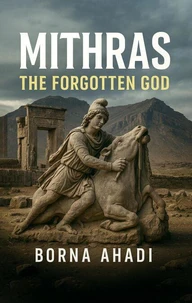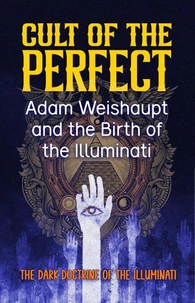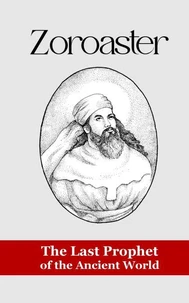Nouveauté
Human Zoos: A Dark Chapter in History
Par :Formats :
Disponible dans votre compte client Decitre ou Furet du Nord dès validation de votre commande. Le format ePub est :
- Compatible avec une lecture sur My Vivlio (smartphone, tablette, ordinateur)
- Compatible avec une lecture sur liseuses Vivlio
- Pour les liseuses autres que Vivlio, vous devez utiliser le logiciel Adobe Digital Edition. Non compatible avec la lecture sur les liseuses Kindle, Remarkable et Sony
 , qui est-ce ?
, qui est-ce ?Notre partenaire de plateforme de lecture numérique où vous retrouverez l'ensemble de vos ebooks gratuitement
Pour en savoir plus sur nos ebooks, consultez notre aide en ligne ici
- FormatePub
- ISBN8231460205
- EAN9798231460205
- Date de parution28/07/2025
- Protection num.pas de protection
- Infos supplémentairesepub
- ÉditeurWalzone Press
Résumé
Human Zoos: A Dark Chapter in History is a haunting journey into one of humanity's most disturbing and overlooked legacies. With gripping narrative and uncompromising historical clarity, this book reveals the shocking truth behind public exhibitions that displayed human beings in cages and mock villages for the entertainment of Western audiences. In the heart of the 19th and 20th centuries, colonial powers around the world turned indigenous peoples into living exhibits-stripped of identity, dignity, and humanity.
Labeled as "savages, " they were placed behind fences in world fairs, museums, and amusement parks under the banner of science, anthropology, and empire. These spectacles attracted millions, reinforced racial superiority theories, and played a crucial role in justifying imperialism and systemic racism. From Paris to New York, from Berlin to Tokyo, the practice of human zoos was not a fringe curiosity-it was mainstream entertainment rooted in colonial dominance.
This powerful book explores how these events unfolded, who profited from them, and how they influenced scientific racism, popular culture, and political ideology. Drawing from real testimonies, archival records, and photographs, Human Zoos paints a vivid and painful portrait of a world intoxicated by hierarchy and power. It highlights not just the victims of these dehumanizing displays but also the voices of resistance, including activists, scholars, and survivors who fought back against this degrading spectacle.
The book also addresses the ongoing legacy of these human exhibitions, connecting the dots between past injustices and present-day racism, xenophobia, and cultural appropriation. Through deep historical analysis and modern reflection, Human Zoos calls upon readers to remember, reckon, and reject the forces that devalue human life. This book is essential reading for anyone interested in: The hidden crimes of colonial history The roots of modern racism Anthropology, ethnography, and their ethical failures How science was manipulated to support white supremacy The psychological and social cost of public dehumanization The cultural echoes of human zoos in today's media and institutions Human Zoos: A Dark Chapter in History is not merely a chronicle of the past-it is a warning, a lesson, and a demand for empathy.
Bold, unflinching, and deeply moving, it invites readers to examine the darkest impulses of civilization and to reclaim the shared humanity too often denied in the name of spectacle.
Labeled as "savages, " they were placed behind fences in world fairs, museums, and amusement parks under the banner of science, anthropology, and empire. These spectacles attracted millions, reinforced racial superiority theories, and played a crucial role in justifying imperialism and systemic racism. From Paris to New York, from Berlin to Tokyo, the practice of human zoos was not a fringe curiosity-it was mainstream entertainment rooted in colonial dominance.
This powerful book explores how these events unfolded, who profited from them, and how they influenced scientific racism, popular culture, and political ideology. Drawing from real testimonies, archival records, and photographs, Human Zoos paints a vivid and painful portrait of a world intoxicated by hierarchy and power. It highlights not just the victims of these dehumanizing displays but also the voices of resistance, including activists, scholars, and survivors who fought back against this degrading spectacle.
The book also addresses the ongoing legacy of these human exhibitions, connecting the dots between past injustices and present-day racism, xenophobia, and cultural appropriation. Through deep historical analysis and modern reflection, Human Zoos calls upon readers to remember, reckon, and reject the forces that devalue human life. This book is essential reading for anyone interested in: The hidden crimes of colonial history The roots of modern racism Anthropology, ethnography, and their ethical failures How science was manipulated to support white supremacy The psychological and social cost of public dehumanization The cultural echoes of human zoos in today's media and institutions Human Zoos: A Dark Chapter in History is not merely a chronicle of the past-it is a warning, a lesson, and a demand for empathy.
Bold, unflinching, and deeply moving, it invites readers to examine the darkest impulses of civilization and to reclaim the shared humanity too often denied in the name of spectacle.
Human Zoos: A Dark Chapter in History is a haunting journey into one of humanity's most disturbing and overlooked legacies. With gripping narrative and uncompromising historical clarity, this book reveals the shocking truth behind public exhibitions that displayed human beings in cages and mock villages for the entertainment of Western audiences. In the heart of the 19th and 20th centuries, colonial powers around the world turned indigenous peoples into living exhibits-stripped of identity, dignity, and humanity.
Labeled as "savages, " they were placed behind fences in world fairs, museums, and amusement parks under the banner of science, anthropology, and empire. These spectacles attracted millions, reinforced racial superiority theories, and played a crucial role in justifying imperialism and systemic racism. From Paris to New York, from Berlin to Tokyo, the practice of human zoos was not a fringe curiosity-it was mainstream entertainment rooted in colonial dominance.
This powerful book explores how these events unfolded, who profited from them, and how they influenced scientific racism, popular culture, and political ideology. Drawing from real testimonies, archival records, and photographs, Human Zoos paints a vivid and painful portrait of a world intoxicated by hierarchy and power. It highlights not just the victims of these dehumanizing displays but also the voices of resistance, including activists, scholars, and survivors who fought back against this degrading spectacle.
The book also addresses the ongoing legacy of these human exhibitions, connecting the dots between past injustices and present-day racism, xenophobia, and cultural appropriation. Through deep historical analysis and modern reflection, Human Zoos calls upon readers to remember, reckon, and reject the forces that devalue human life. This book is essential reading for anyone interested in: The hidden crimes of colonial history The roots of modern racism Anthropology, ethnography, and their ethical failures How science was manipulated to support white supremacy The psychological and social cost of public dehumanization The cultural echoes of human zoos in today's media and institutions Human Zoos: A Dark Chapter in History is not merely a chronicle of the past-it is a warning, a lesson, and a demand for empathy.
Bold, unflinching, and deeply moving, it invites readers to examine the darkest impulses of civilization and to reclaim the shared humanity too often denied in the name of spectacle.
Labeled as "savages, " they were placed behind fences in world fairs, museums, and amusement parks under the banner of science, anthropology, and empire. These spectacles attracted millions, reinforced racial superiority theories, and played a crucial role in justifying imperialism and systemic racism. From Paris to New York, from Berlin to Tokyo, the practice of human zoos was not a fringe curiosity-it was mainstream entertainment rooted in colonial dominance.
This powerful book explores how these events unfolded, who profited from them, and how they influenced scientific racism, popular culture, and political ideology. Drawing from real testimonies, archival records, and photographs, Human Zoos paints a vivid and painful portrait of a world intoxicated by hierarchy and power. It highlights not just the victims of these dehumanizing displays but also the voices of resistance, including activists, scholars, and survivors who fought back against this degrading spectacle.
The book also addresses the ongoing legacy of these human exhibitions, connecting the dots between past injustices and present-day racism, xenophobia, and cultural appropriation. Through deep historical analysis and modern reflection, Human Zoos calls upon readers to remember, reckon, and reject the forces that devalue human life. This book is essential reading for anyone interested in: The hidden crimes of colonial history The roots of modern racism Anthropology, ethnography, and their ethical failures How science was manipulated to support white supremacy The psychological and social cost of public dehumanization The cultural echoes of human zoos in today's media and institutions Human Zoos: A Dark Chapter in History is not merely a chronicle of the past-it is a warning, a lesson, and a demand for empathy.
Bold, unflinching, and deeply moving, it invites readers to examine the darkest impulses of civilization and to reclaim the shared humanity too often denied in the name of spectacle.






















